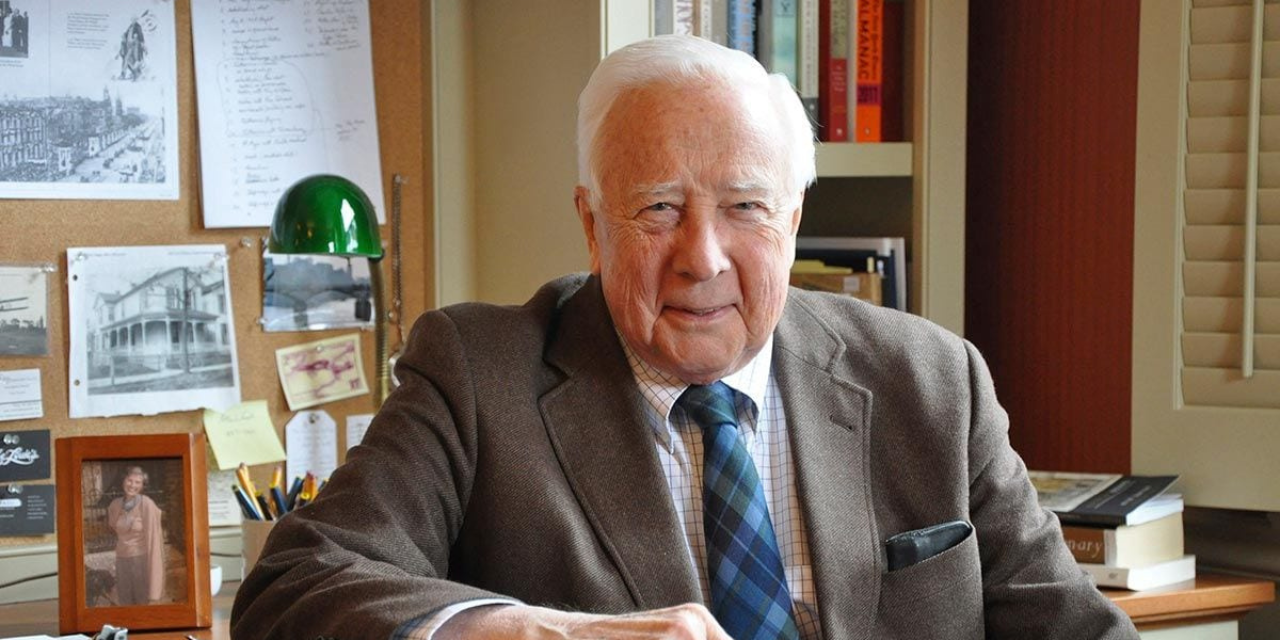David McCullough, the bestselling author known as the “Historian of America” who died Sunday at the age of 89, often described his childhood growing up in Pittsburgh as idyllic.
Why?
He was raised in a family with a mother and father who read to him, and who taught their four sons to love and appreciate history.
“To me, history ought to be a source of pleasure,” McCullough reflected “It isn’t just part of our civic responsibility. To me, it’s an enlargement of the experience of being alive, just the way literature or art or music is.”
McCullough, who once described writing as “talking on paper,” would say his mother and father taught him “the gift of gab.”
Two of McCullough’s presidential autobiographies won the Pulitzer Prize – “Truman” (1992) and “John Adams” (2001). Each of his other dozen books continued to sell and enjoy high acclaim, including “The Great Bridge,” a marvelous story on the building of the Brooklyn landmark, “The Path Between the Seas: The Creation of the Panama Canal,” “The Wright Brothers,” and his latest and last, “The Pioneers.”
What distinguished McCullough’s books from other talented authors wasn’t just the quality of the writing or even the deep scholarship – it was his conversational and captivating storytelling style.
“I write for the ear as well as the eye,” he once said. “Every line of every chapter of my books, Rosalee has read aloud to me.”
Rosalee was David’s beloved wife of 68 years. She died this past June, also at age 89. They had five children and 19 grandchildren.
The McCullough’s were a team in more ways than one. David would regularly introduce Rosalee this way:
“I wouldn’t be here – I wouldn’t have had anything like the life I’ve had as a writer and historian, or the life I’ve had as a human being – without the help of my editor-in-chief … she is, as well as my wife, Mission Control, Secretary of the Treasury, and star I steer by.”
Back when he was trying to make a go as an independent writer, David McCullough left a steady and comfortable job writing for Sports Illustrated. Rosalee agreed to mortgage their house – and then take a loan from a friend when his book on the Johnstown flood took longer than expected to complete.
Each of his books were written on the same 1946 Royal KMM typewriter, its black paint peeling along the edges. Often, he would write in a small shed behind his house on Martha’s Vineyard.
When asked if there was some secret to his success, McCullough would say that he simply tackled topics and wrote books that he would like to read.
Many of us also loved McCullough’s voice, its warm timbre hitting all the right tones. It was a powerful combination – poignant writing and perspective coupled with his soothing sound. Listening to him read one of his books, tell a story or simply answer a question in an interview was like sitting beside your aging father or grandfather. He was substance and style – and a lot of both.
Beyond his love of family and his excellent books, articles and speeches was his own appreciation for the gifts he was given.
“Real success is finding your lifework in the work that you love,” he once said.
He added:
“The reward of the work has always been the work itself, and more so the longer I’ve been at it. The days are never long enough, and I’ve kept the most interesting company imaginable with people long gone.”
David McCullough is now gone, too, but thankfully, his life’s work endures in print and other media.
Requiescat in pace.






